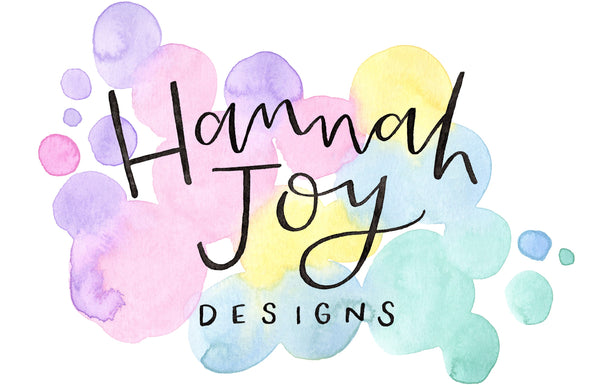Remember that saying, there is no such thing as a wrong question?! Well, whilst that is totally true, there are definitely some questions that are better than others when it comes to helping your children to think and communicate effectively.
Asking children open-ended questions helps to build their vocabulary, encourages critical thinking, develops their emotional intelligence, teaches them the art of conversation and how to communicate effectively, builds their confidence and develops their independence. So as you can see open-ended are pretty juicy!
When talking to your children and helping them development language and communication skills, using open ended questions is one of the most powerful things you can do. But it takes a little practice, so don’t worry if you struggle at first to get out of the habit of those closed questions, we all revert back to those occasionally and some situations require a quick yes or no answer. For example, do you need a drink? doesn’t require any extra thought, it is just yes or no.

So what is an open-ended question?
It is a question with no right or wrong answer, it focuses more on the other persons thoughts or feelings, it doesn’t have a one word answer and can’t be answered with a yes or no. They open up conversation and get us thinking.
Open ended questions generally start with – What, Why or How. Other examples are - Tell me about …, What do you think about …., I wonder if …., Can you tell me about …. These are all great ways to start a conversation and get children talking.
The most important thing when asking these open questions and starting conversations with your children is, that you actively listen and respond. You can start the conversation but let them lead it, listen to what they say and respond to it with more open-ended conversation and questions to expand on what they are saying.
Part of active listening is giving time for the child to respond, it can take them longer to think about and process the question than you expect, 5-10 seconds, which can feel like a long time to wait in a conversation, but be patient. This conversation isn’t about you getting answers, it about encouraging thinking and communication, so just allow that to happen at their pace.
As we know sometimes children’s answers can be long, make very little sense or be repetitive. Try not to interrupt them, as I said this is not about gaining information, there is no right or wrong answer. It is about encouraging them to use their imagination or talk about their feelings or experiences. As adults if we had someone that always jumped in, talked over us, disputed what we said or just didn’t appear to listen, we would soon get bored of talking to them and see them as a person that is not fun to share thoughts with. So be a patient listener, what they are saying might not seem to make sense or be important but it is all about them learning to communicate, process feelings, problem solve and grow in confidence. So in that sense, what they are saying (or just the fact that they are saying it) is super important.

Keep questions short and clear, long complicated questions may confuse them or lose their interest completely and they will easily become distracted. Can you tell me about your picture? What is happening here? What does that feel like? Short, sweet and to the point.
Remember conversations is a 2 way street, they are not about one person asking the questions and the other person answering. It’s not an interview! Let’s face it none of us would choose to sit in job interviews for fun, so don’t make it like that for your child. Keep conversation fun and light, give your thoughts and opinions too, children learn a lot from what we say so showing them how you answer questions and share your thoughts is important too.
For example,
You: The sun is shining today, how do you feel?
Child: I feel hot.
You: Oh yes me too, how it is making your body feel?
Child: It feels a bit prickly and sticky.
You: Mine feels sticky too, have you go any ideas how we could cool down?
Child: Maybe we could splash each other with water.
You: Yes we could splash water, that would definitely cool me down. What would happen if our clothes got wet?
Child: Our clothes would feel cool and then we can get changed, we could put swimming clothes on.
This is a really simple everyday conversation, but it is so easy as an adult to give the answers in the questions, leaving children with only the opportunity to answer with yes or no
For example, this is the same conversation but with closed questions -
You: It's hot today, are you feeling sticky?
Child: Yes
You: We need to cool down, maybe we could splash ourselves with water what do you think?
Child: Yay water
You: But then we will have wet clothes and need to get changed
Child: Ok
Both of these are positive conversations, but the first one gave the child time to think and consider their own thoughts rather than just agree with the adult.
Here are some more examples for you of open-ended questions versus the closed version
|
Open-Ended Questions |
Closed Questions |
|
Can you tell me about your drawing? |
Is that a drawing of a car? |
|
What has been your favourite part of today? |
Did you enjoy the park today? |
|
How did you learn to do that? |
Did they teach you that in school? |
|
What do you think happens next? |
Shall we find out what happens next? |
|
How did that make you feel? |
Do you feel sad or happy? |

If you are wondering what kind of age children can start to understand and answer this type of questions, then my suggestion is pre-school upwards. So age 3-4 and above. But of course, all children are different, some have a more complex understanding of language from an earlier age and some children are still getting to grips with language when they are slightly older.
But if they can understand sentences and questions and they are able to put a sentence together themselves, then you can hold simple conversations with them from a fairly young age. The earlier they hearing these type of questions, the more used to understanding them they will be, even if at first they only give one word answers.
And most importantly just enjoy having fun and engaging chats with your kids, they will probably surprise you with what they come up with once you open the conversation and the questions up.


